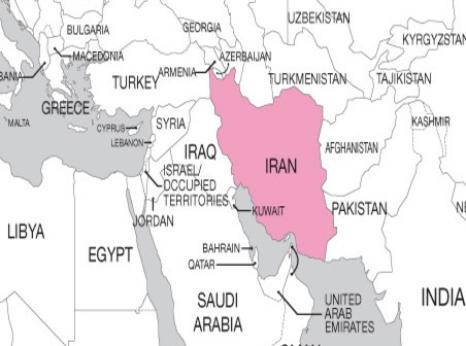Iran: Two Detained Baluchi Teenagers Tortured

For months after Maziar Shahbakhsh and Yasin Shahbakhsh arrests, the authorities refused to provide their families the reasons for their arrest and detention. In recent months, however, a Revolutionary Court judge has told their families that they are detained because of their familial affiliation with the father and paternal uncle of Maziar Shahbakhsh, who are also relatives of Yasin Shahbakhsh, and who were both killed in reported armed clashes with security forces several months before the teenagers’ arrests. The judge also told the family of Maziar Shahbakhsh that he is detained because of videos and pictures of his father and uncle found on his mobile phone and because he “created insecurity” in the country through his alleged involvement in the armed clash during which his uncle was killed.
Maziar Shahbakhsh’s father, Abdolmalek Shahbakhsh, was killed on 15 November 2021 during armed clashes with security forces in Kerman province, which also resulted in the deaths of three members of the security forces, according to media reports. Maziar Shahbakhsh’s uncle, Gholam Shahbakhsh, was killed several months later, on 1 January 2022, when security forces launched an armed attack on a home in Kourin in Sistan and Baluchistan province. According to Baluchi human rights activists, several other Baluchis were also killed during this attack. In relation to this incident, on 2 January 2022, state media reported that security forces in Sistan and Baluchistan province killed six “armed criminals” and named Gholam Shahbakhsh as one of those killed. State media also reported the deaths of four members of the security forces. Informed sources have told Amnesty International that several witnesses have signed statements that Maziar Shahbakhsh was in Zahedan during the incident in which his uncle was killed. However, these statements, which have been provided to the authorities, appear to have been ignored. According to informed sources, prior to their deaths, Abdolmalek Shahbakhsh and Gholam Shahbakhsh were harassed by security and intelligence agents who repeatedly attempted to recruit them as informants to provide intelligence on their local communities, which they refused. No independent, impartial and effective investigations had been conducted into the causes and circumstances of their deaths, according to information available to Amnesty International.
Prior to his arrest, Yasin Shahbakhsh worked as a fuel porter (“Soukhtbar” in Persian) and was the main breadwinner in his family. Fuel porters generally live in extreme poverty in Sistan and Baluchistan province. They try to earn a living by selling fuel in border villages in Pakistan. While some have an official license to transport fuel, the vast majority do so irregularly through peripheral border routes and report that they are asked to pay regular bribes to Revolutionary Guards officials who control the border crossings. Every year, Iranian security forces fatally shoot or injure, with impunity, dozens of fuel porters in the name of confronting “fuel smuggling”.
Iran’s Baluchi minority face entrenched discrimination that curtails their access to education, health care, employment, adequate housing and political office. Continued under-investment by central government in minority-populated areas such as Sistan and Baluchistan province have exacerbated poverty and marginalization in the region. Many people in this province continue to be denied their right to sufficient, physically accessible and safe water due to particularly poor infrastructure, and have poor access to electricity, schools and health facilities due to under-investment. Amnesty International has been told by Baluchi human rights activists and families of detainees and prisoners that intelligence and security forces often attempt to harass and intimidate Baluchi men and boys to become informants in their community to control the minority population. The Baluchi minority have borne the brunt of the vicious crackdown by security forces during the uprising that has swept across Iran since September 2022, with more than 100 people killed in Sistan and Baluchistan province alone.
Under international law, every person under the age of 18 years at the time of the alleged crime must be treated in accordance with the principles of child justice. Children accused of infringing the law are entitled to all fair trial rights that apply to adults, as well as to additional child justice protections. In particular, their treatment must reflect the fact that children differ from adults in their physical and psychological development and must take into account the best interests of the child. In the administration of child justice, states must systematically ensure respect for the best interests of the child; the child’s rights to life, survival and development; the child’s right to be heard; and the right to be free from discrimination. Deprivation of liberty must be used only as a measure of last resort and for the shortest appropriate period of time, and alternatives to detention must be explored by the authorities.